This post may contain affiliate links. We may receive a small commission, at no cost to you, if you make a purchase. Read Disclosure.
Beijing is one of the largest and most important cities of the world, but it’s no secret that China is not the easiest country to travel to for westerners.
With a total metropolitan population of 22 million, it is home to almost 10 million more people than the London metro area, and 3 million more people than New York City’s metropolitan area, and boy do you feel it.
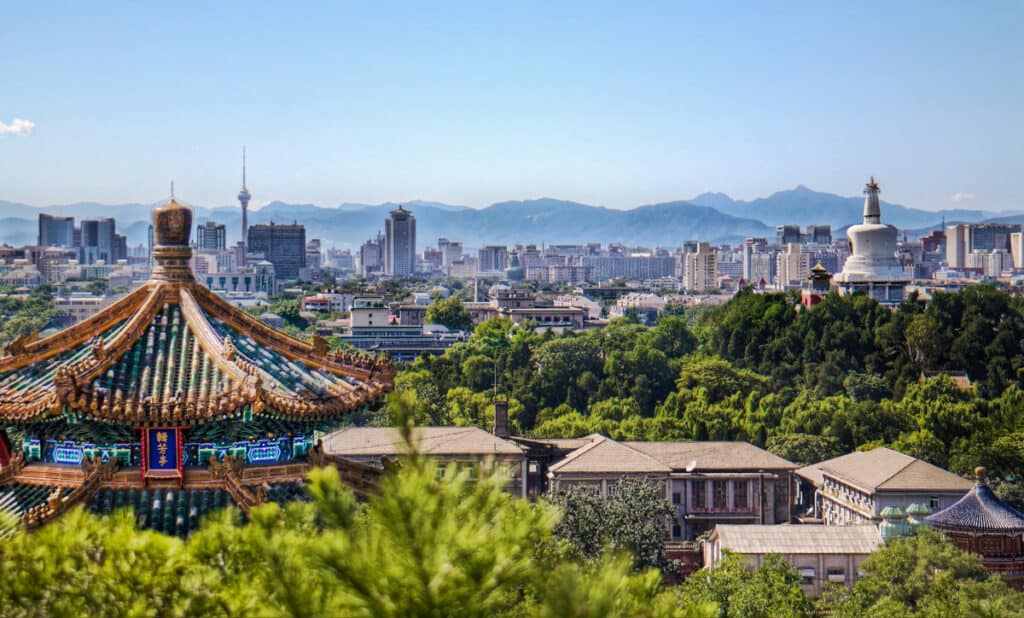
But while Beijing may feel overwhelming for first time visitors, if you go in armed with the know-how and advice, and feel somewhat organized, you can be in for a really incredible experience.
Beijing is a melting pot of ancient cultures, architectural gems, and unique travel experiences.
To ensure you have the best trip possible, here are some of our top tips for your first time visiting Beijing.
Things To Know Before Visiting Beijing
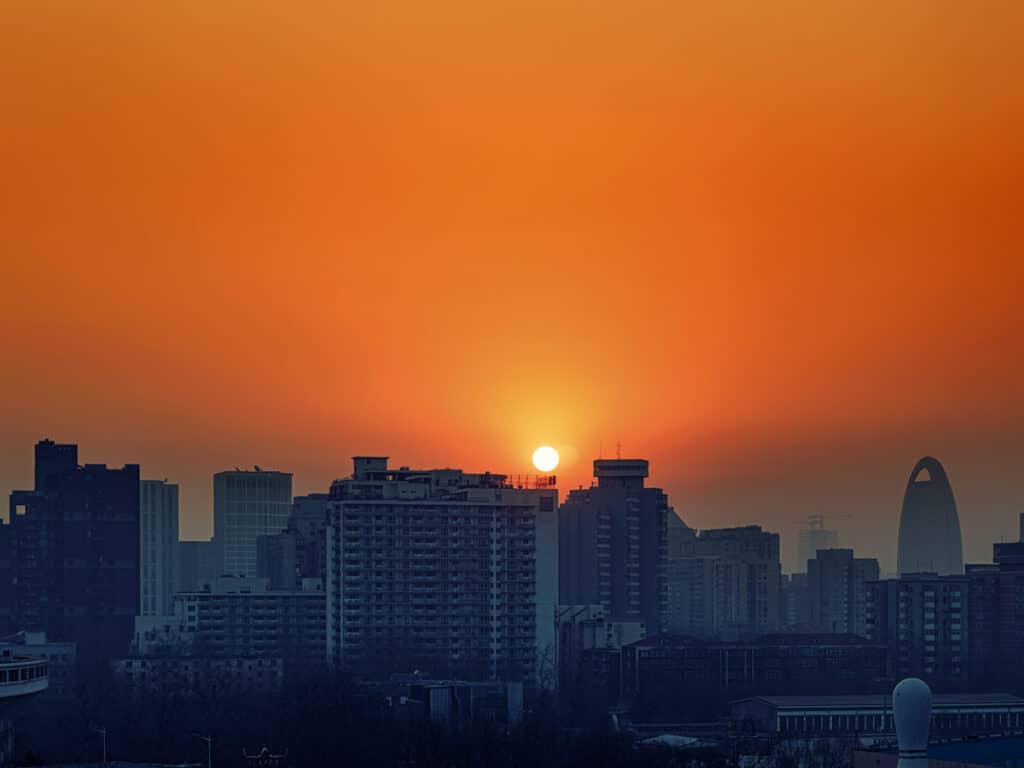
From knowing where to stay, what to eat, how to get around, and what to see, these are the most important things you should know before you go to Beijing…
1. Don’t Miss The Important Beijing Landmarks
Just as London is critical to England’s history, Beijing is critical to the rich history of China.
For centuries, Beijing, formerly known as Peking, has served as the cultural and political hub of China.
The Beijing visitor will be delighted by a host of historical palaces, ancient temples, huge stone walls, and state-of-the-art new architecture.
Be sure not to miss these landmarks…
The Forbidden City
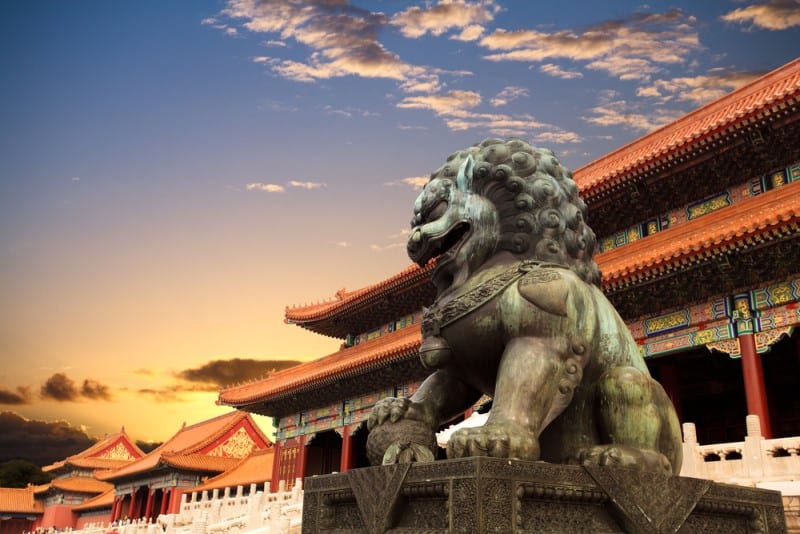
The Ming and Qing emperors of China built an impressive palace in the center of Beijing , starting in early the 15th century.
By the time it was completed in 1420, the palace included 980 buildings, 8,707 rooms, and covered a total of almost 8 million square feet.
In 1987, the Forbidden City was named as a UNESCO World Heritage Site. Open to tourists, the Forbidden City is a must-see for anyone with an interest in Chinese history or art.
Tiananmen Square, the largest city square in the world, also borders the Forbidden City.
Temple of Heaven
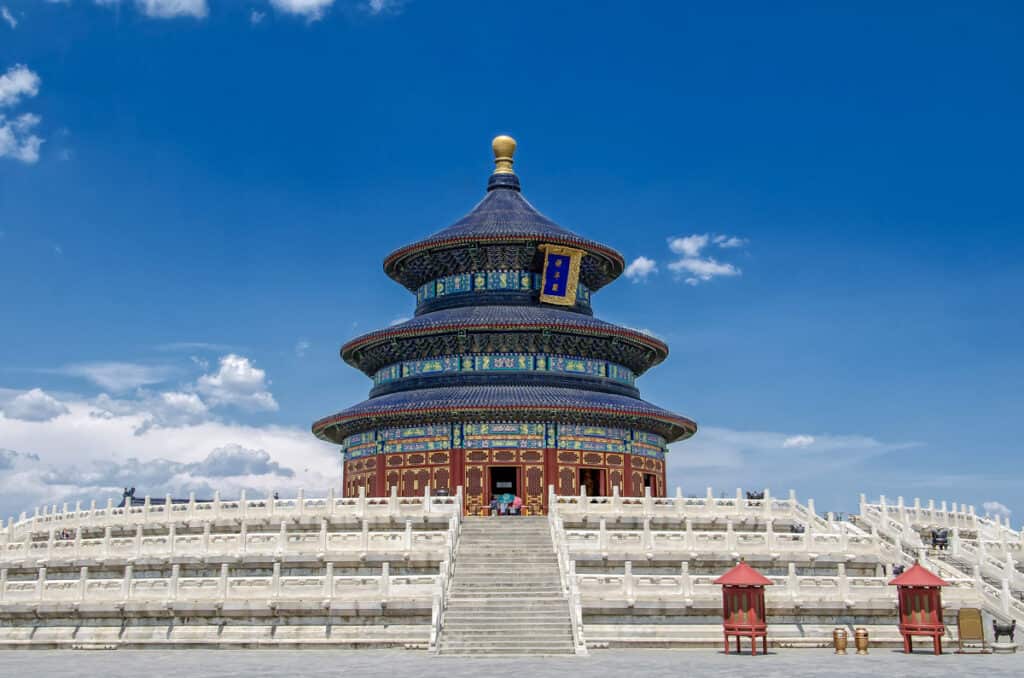
In the southeastern part of the city lies the Temple of Heaven, a Taoist complex.
Constructed at the same time as the Forbidden City, the temple is important both in terms of its religious significance in China and its historical significance.
In 1998, it was named a UNESCO World Heritage Site for its amazing architecture and landscape design.
Thirteen Tombs of the Ming Dynasty
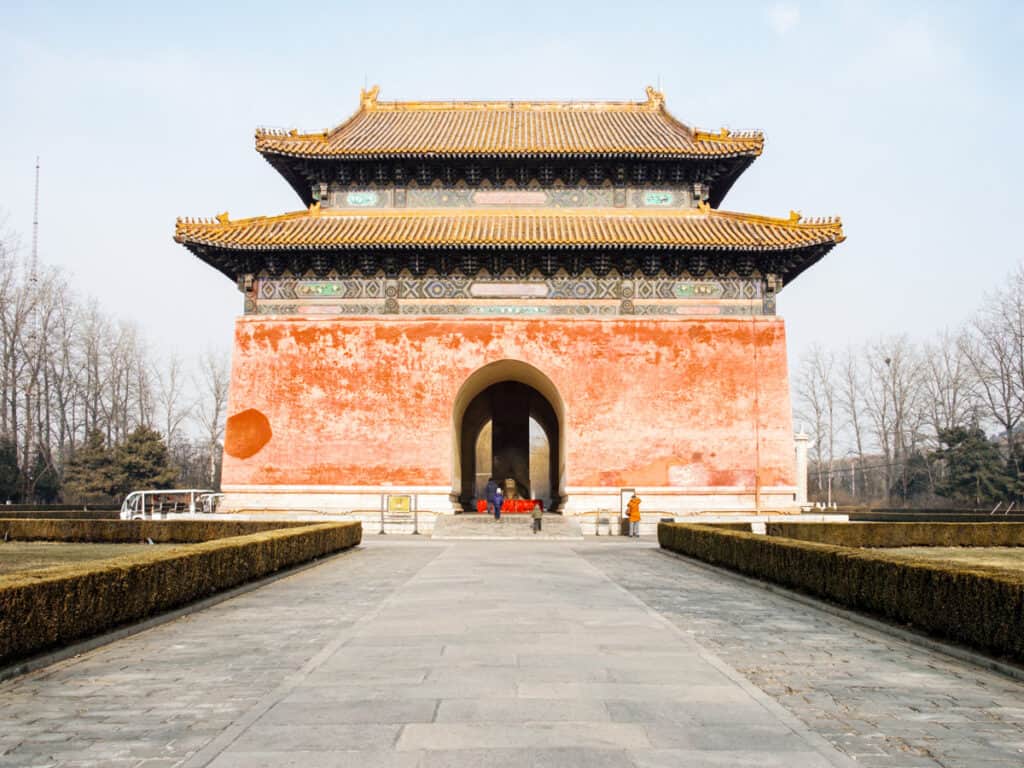
Even in death, the Chinese emperors made sure to leave their mark. Also a World Heritage Site, these elaborate tombs were excavated in 1956 by Chinese archaeologists.
Unfortunately, Cultural Revolution fervor stopped the excavation and led to some destruction of the artifacts originally excavated, but the museum still contains many well-preserved artefacts from the tombs.
National Center for the Performing Arts
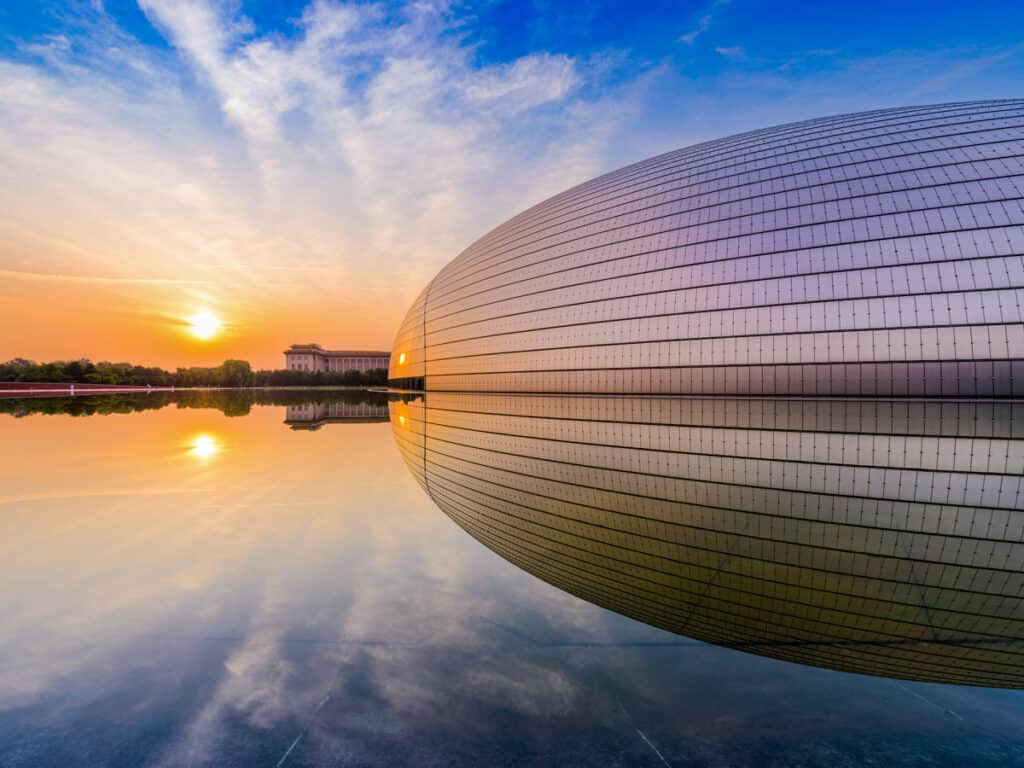
Also known as the National Grand Theatre, the center is an opera house made of titanium and glass, surrounded by a large artificial lake. West of Tiananmen Square, the hall is home to opera, symphonies, and plays.
Wangfujing Street
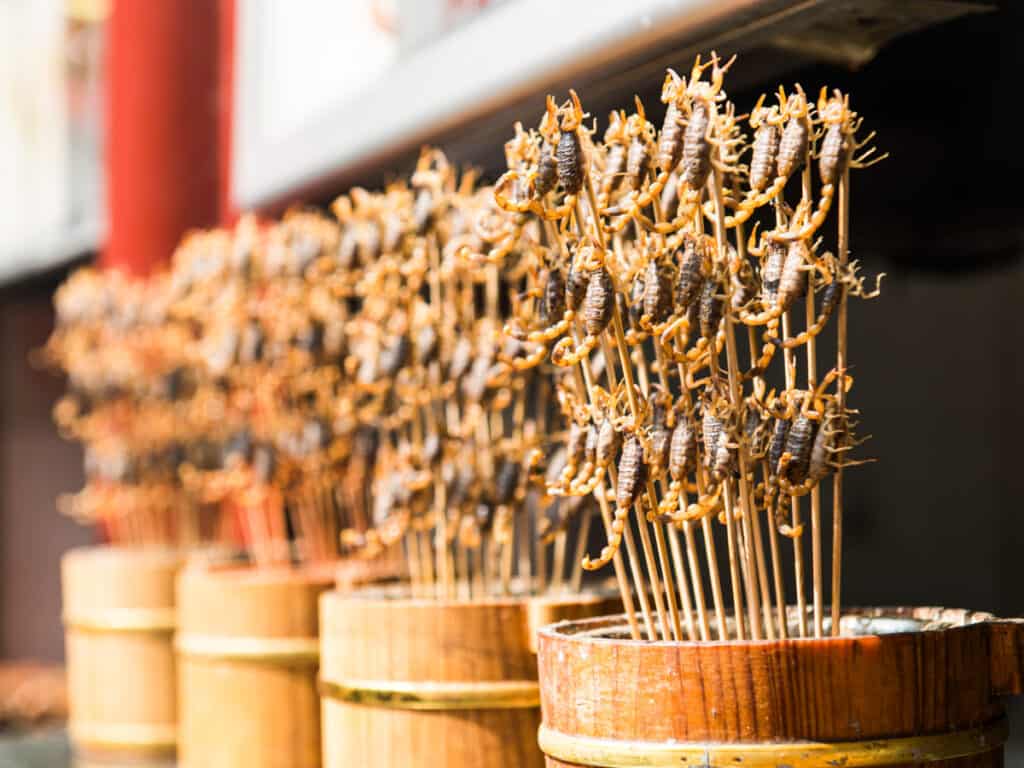
One of the busiest pedestrian streets in the world, Wangfujing is home to almost 300 brands of Beijing, including famous hat, shoe, and tea stores.
The Night Market offers exotic street food that includes fried scorpions and unusual sea creatures – western stomachs, be warned!
Wangfujing Cathedral
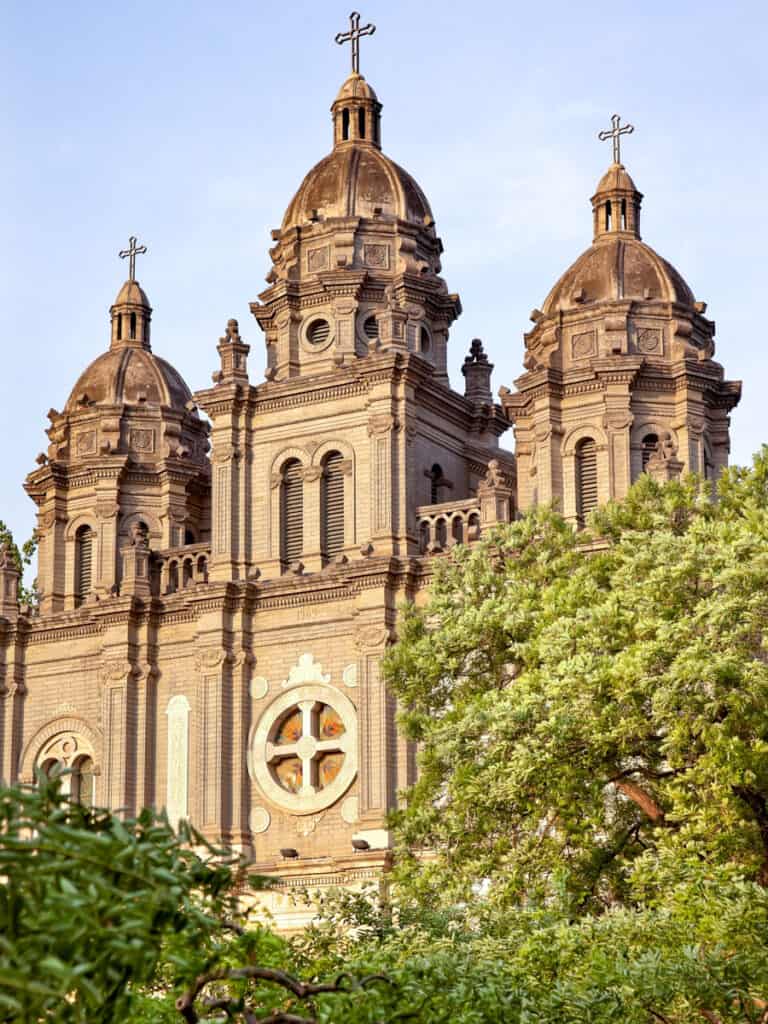
Not far from Wangfujing’s shopping district is a Catholic cathedral built by the Jesuits in the mid-17th century.
It is an odd bit of European architecture in a city that otherwise blends mostly ancient Chinese architecture with modern westernized skyscrapers.
The Imperial Summer Palace
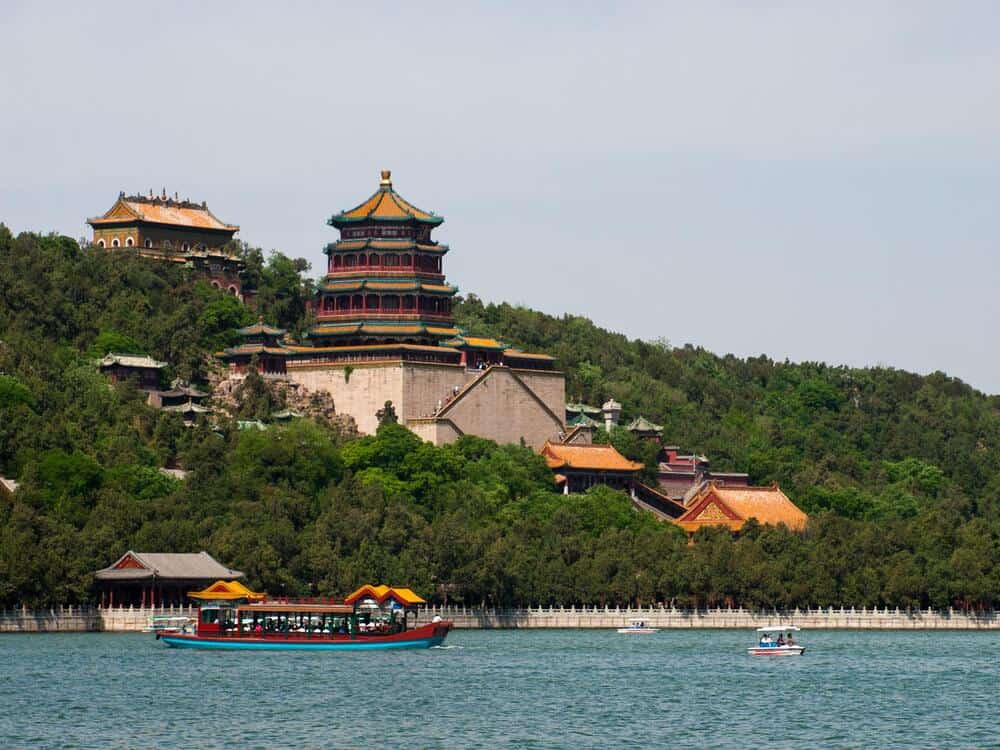
The Summer Palace was once the getaway for the Emperors and Empresses who needed a quiet retreat from the chaos of Beijing.
The picturesque setting next to the Kunming Lake and Longevity Hill make the palace a serene sanctuary.
Lama Temple
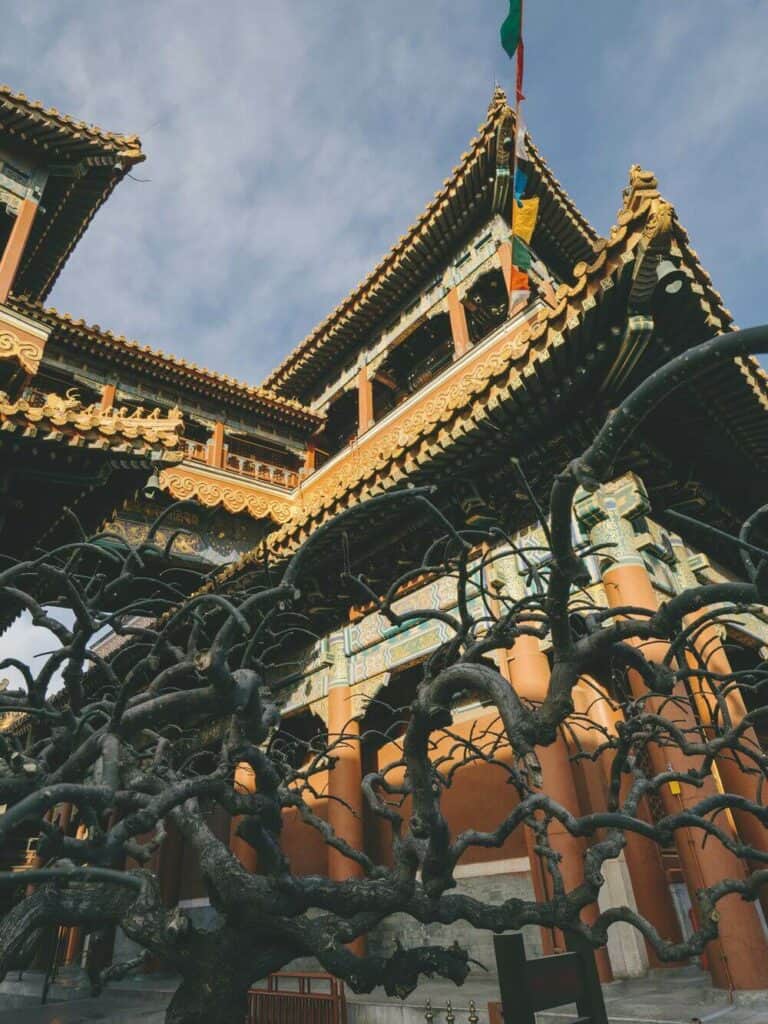
The Lama Temple, also known as Yonghe gong, is one of the most famous temples in Beijing,
With its vibrant colors and spiritual ambiance, as soon as you walk through its ornate gates you’ll feel the tranquility and reverence of the place.
The temple’s impressive architecture and intricate Tibetan-style artwork set it apart from other temples in the city.
Be sure to check out the Hall of Heavenly Kings and Pavilion of Ten Thousand Happinesses.
2. Don’t Avoid The Hutongs
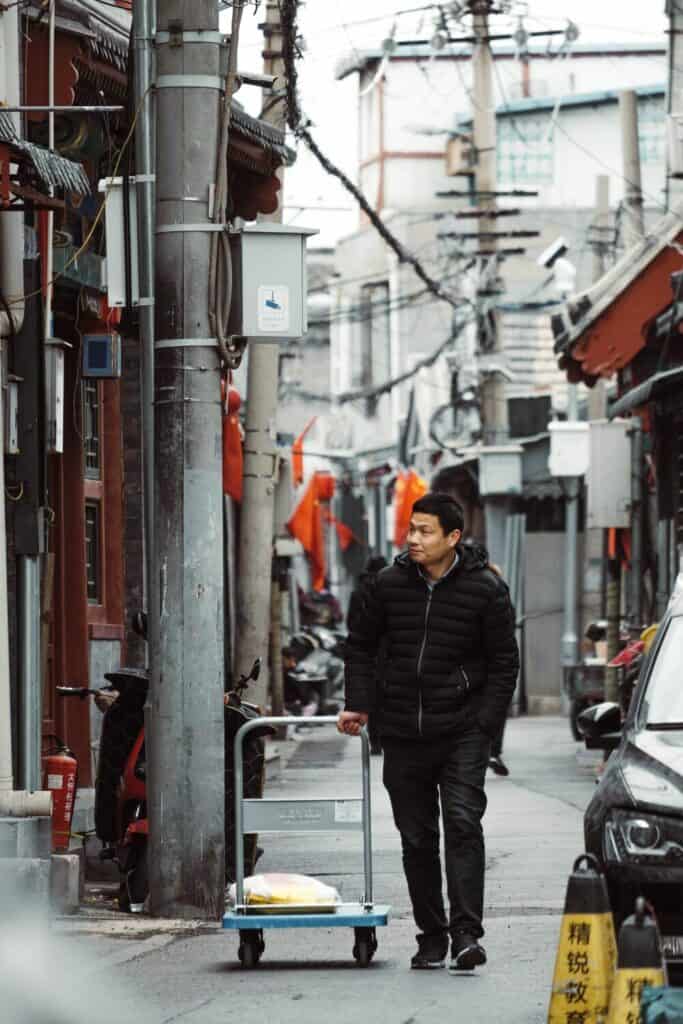
Hutongs are small, narrow alleyways that usually contain local restaurants. They are a window into the traditional way of life and a cultural experience not to miss.
3. Don’t drink the tap water
Only drink bottled water, as the tap water is not safe to drink in Beijing.
4. Get a VPN
China is famous for having the Great Firewall over the People’s Republic of China, and so there is a block on Western internet sites and social media apps, such as Facebook, Instagram, Twitter, even Whatsapp.
You may also find most Google products such as Gmail and Google Maps are blocked too. Think you can use Google Translate to help with the language barrier? That’s blocked too.
But don’t worry, there is a way around all of this. Get a VPN (Virtual Private Network).
They are completely legal and are necessary for accessing the apps you use at home. Even if it is just to stream on Netflix (yes, that’s blocked too).
You’ll also want to get an eSim before arrival to access the internet. You can also get really cheap eSims from Airalo. You can set it up so it’s ready to go as soon as you arrive. That way you don’t have to worry about finding a local sim card. See prices and availability here.
Get your vPN with NordVPN here. It’s what we use and is fantastic for China.
5. Get the Subway, avoid Taxis
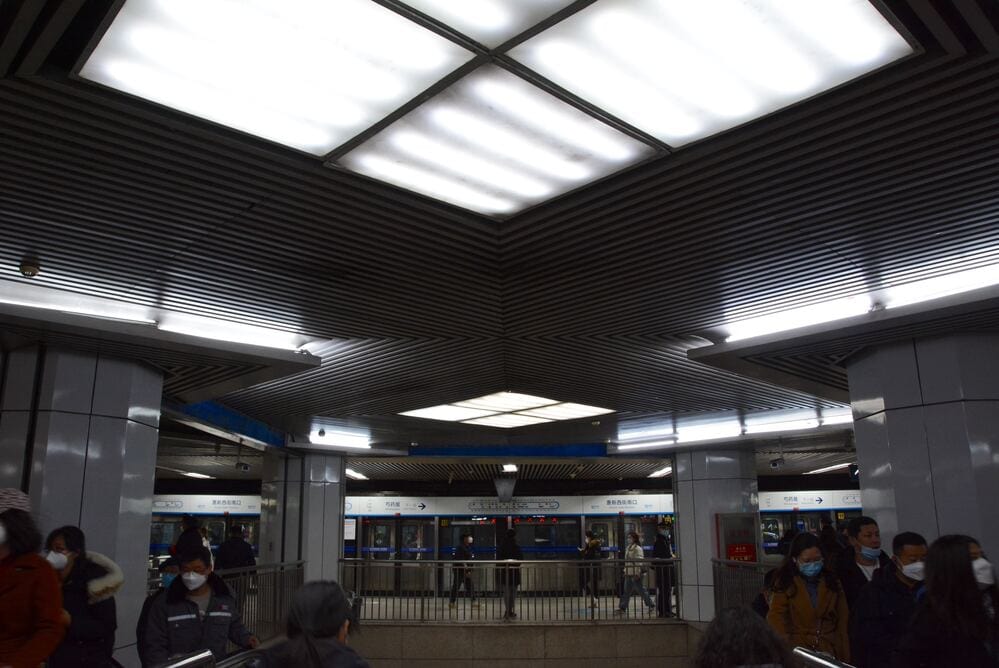
The best way to get around Beijing is using the metro. Taxi drivers don’t speak English, which can make getting around difficult since you will need to show them an address in Chinese characters (simplified Chinese, not Traditional!)
There are usually subway stations at most tourist attractions, it’s really cheap, and quite easy to navigate once you get the hand of it.
The subway also has ticket machines that can be translated into English, and all announcements are made in Mandarin and English.
6. Watch out for the tea scam!
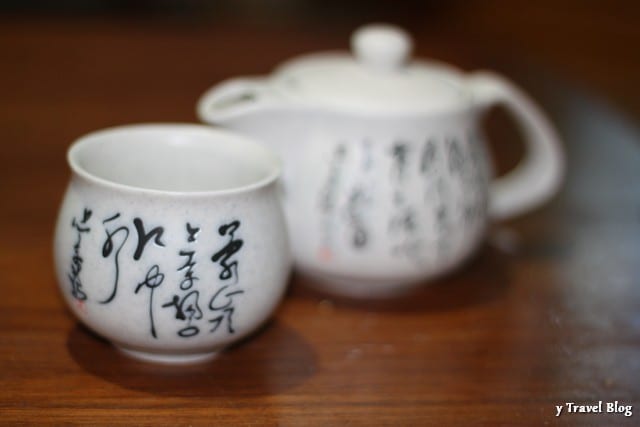
Generally Chinese people are hospitable and welcoming of foreigners, but there are some who take advantage.
It’s quite common for tourists to became a victim of the “tea scam” which can dampen a trip.
If someone comes up to you and asks if you want to go for a “traditional Chinese tea” then move on.
They advertise it as a cultural experience, but what ends up happening is you go for tea, they order a bunch of stuff, and you end up paying for it. Sometimes it can rack up to $150 USD.
And they won’t let you go unless you pay it.
7. Be comfortable with lack of personal space
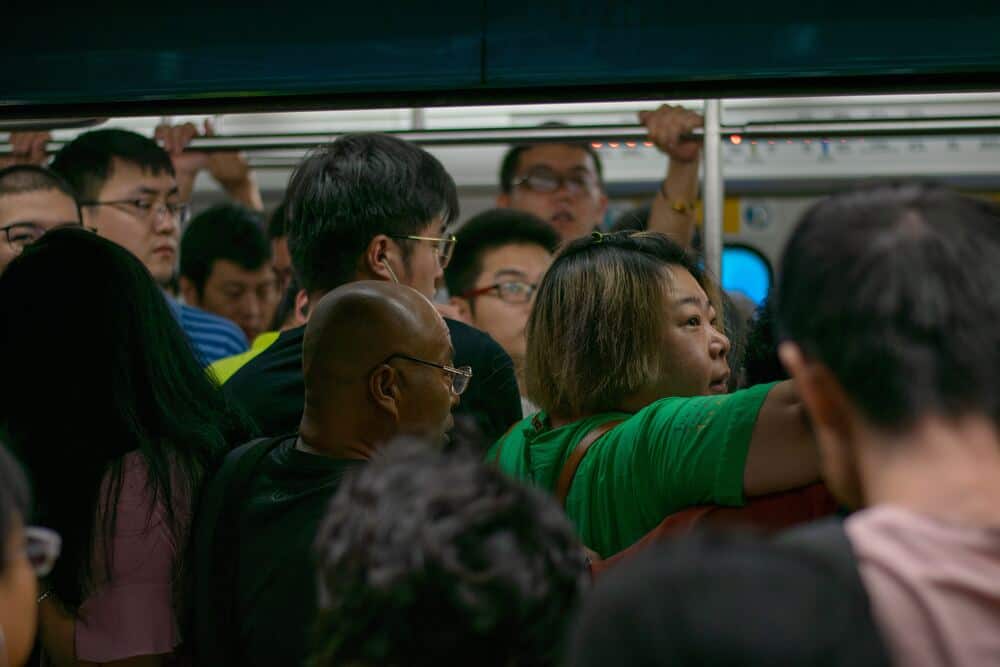
Beijing is overcrowded and busy at all times, so no matter what time of year you visit be prepared to be thrown into the crowds.
Space is a luxury in Beijing, so expect your accommodation to be small, and there to be loud noises everywhere you go.
Peak hour on the subway is madness! Try to avoid traveling on public transport at this time. Just wait in a lovely park for an hour or so until it calms down.
8. Wear masks
You may be wondering why people in Beijing wear masks, and it’s largely due to the air pollution.
Beijing has poor air quality most of the time due to smog, and while it won’t kill you, it may irritate your sinuses.
You can wear a mask to help with this. Hey, after COIVD we’re all used to this!
9. Make sure you try Peking Duck
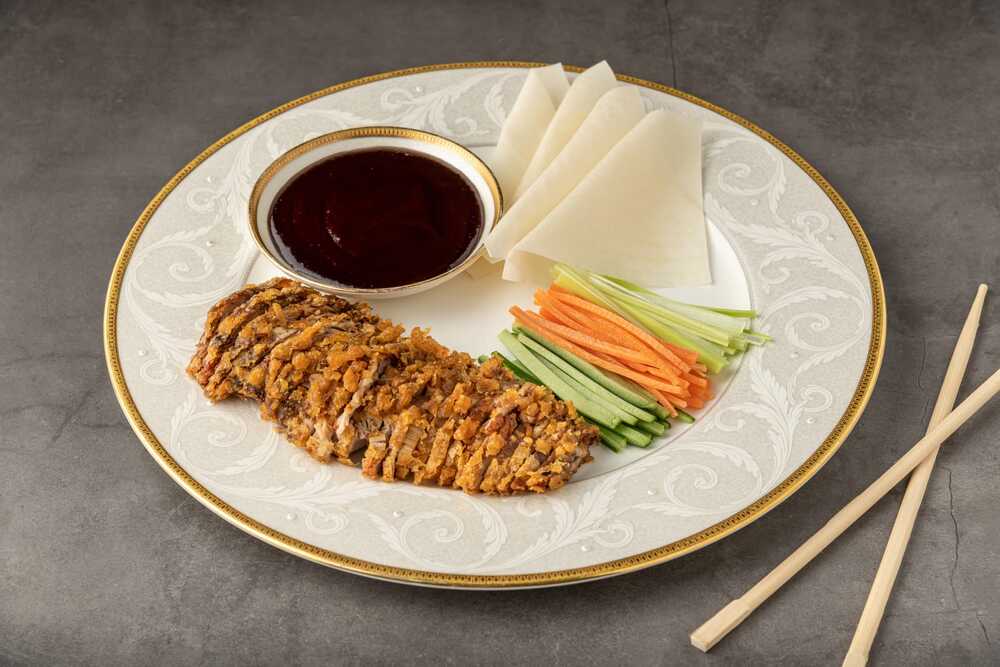
Beijing is known for its regional cuisine such as crispy pork, Sichuan noodles, soup dumplings, and of course, peking duck.
As the birthplace of this iconic dish, Beijing offers the most authentic and flavorful experience.
Renowned for its crispy skin and succulent meat, Peking duck is still made in a traditional way which involves roasting the duck until the skin turns golden and crispy.
Served with delicate pancakes, scallions, and hoisin sauce, every bite of Peking duck is a delightful explosion of taste.
10. Be prepared for the squatty potty
If you’ve traveled in Asia before, you may have come across the squat toilets in public toilets.
If you haven’t, you’re in for a real culture shock. These type of toilets are really common in China and it’s rare that they come with toilet paper.
Your hotel and some upscale restaurants may have a Western-style toilet, but I guarantee at some point you will encounter one of these.
Oh and ladies, take hand sanitizer with you.
11. Get your Visa Early!
Most countries need a visa to enter China, so be sure to get your visa well in advance as it can take a number of weeks to be approved.
The application process is quite in-depth, so be sure to fill in the paperwork correctly.
12. Get WeChat
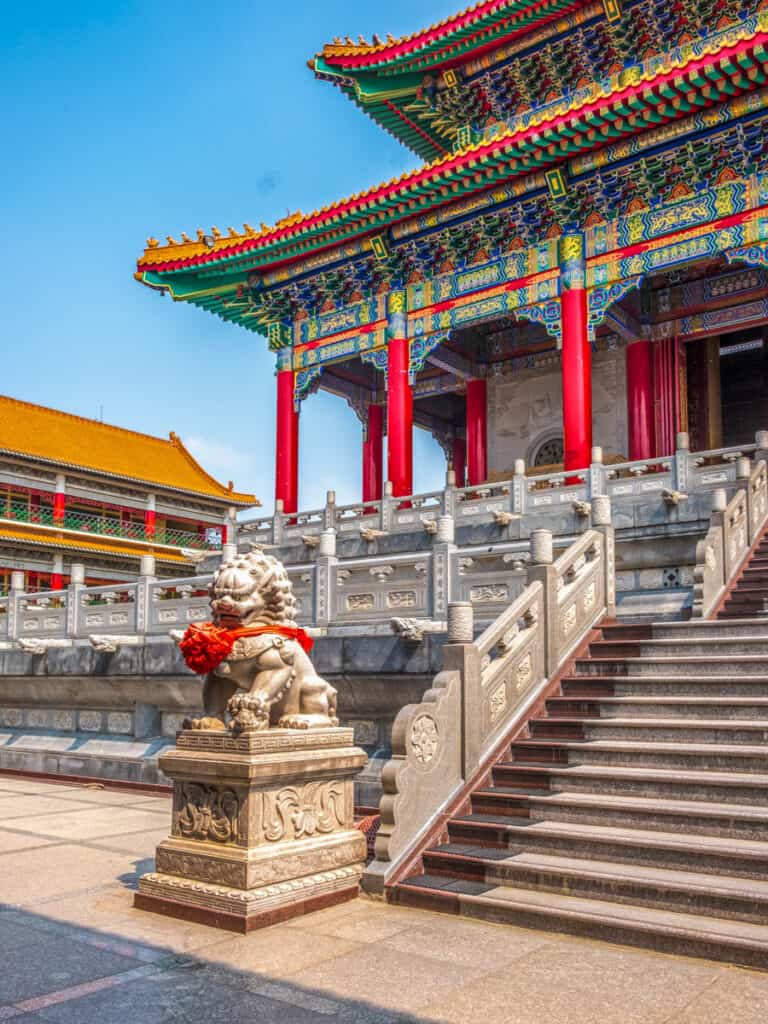
The Chinese use WeChat for everything, from booking tables in a restaurant to paying for groceries.
In most places, you can pay for things with your credit or debit card, but in some places you may find that they only accept WeChat Pay.
The downside to WeChat is you need two current WeChat users to verify your account. If you don’t know anyone in China, ask your hotel reception to help you set it up.
Once you’re on WeChat, you will find traveling in Beijing is much easier.
13. Take out Small Amounts of Cash
Don’t bother with currency exchange places, as they often rip you off with poor exchange rates.
Take out a small amount of cash from ATMs and use your card for most purchases. Most places accept card, so cash isn’t really needed.
If you have a travel credit card, this should work out the cheapest way of paying for things.
14. Don’t Tip
China is one of those countries where tipping is seen as offensive, rude and embarrassing.
The only service in which you might want to tip is if you have a tour guide, but they will usually say they if accept tips to avoid any embarrassment.
Where to stay in Beijing
- For sightseers, the area east of the Forbidden City is full of cheap accommodation.
- For hostels, there’s the well located YHA Peking International Youth Hostel.
- For a budget hotel, friends have enjoyed the modern Hotel Kapok, again right next to the Forbidden City.
- A couple of blocks east you come to Wangfujing where the high-end hotels are clustered.
- The Mandarin Oriental is a personal favourite, and towers over DongHuaMen night market (due to reopen n 2016). Alternatively, look for a family-run traditional courtyard hotel in the same area.
- If you’re going to be spending every night in the bars, it would be more convenient to be over by Sanlitun, where you’ll find most of the expats and backpackers hanging out in Bar Street.
For more places to stay in Beijing choose from the largest range of hotels, apartments, and guesthouses using the map below.
Final Thoughts
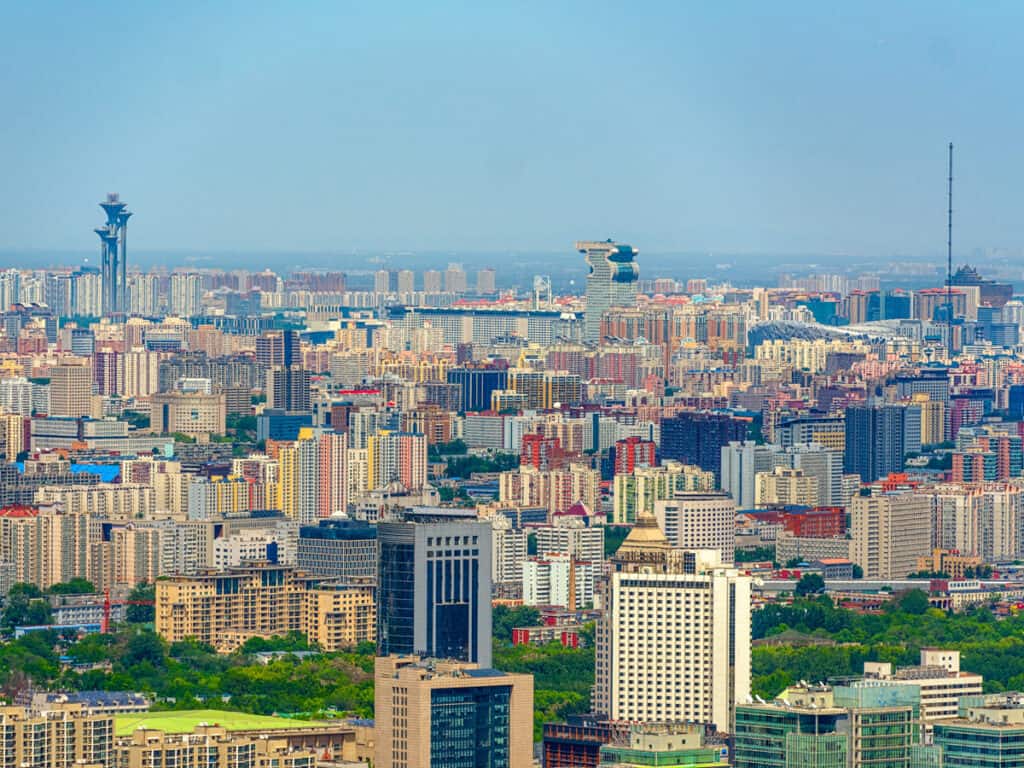
China is a bucket list destination for many people, especially those looking to get a rich and immersive cultural experience.
While Beijing is big, crowded, and chaotic, it’s also a cultural gem and one of the best travel experiences you can have.
We hope this guide to useful tips to know before visiting Beijing was useful to you.
Of course, you can find so much more in your Lonely Planet Guidebooks and I highly recommend you befriend a local to show you around.
If you need more tips or advice, feel free to reach out to us in the comments!
More China Travel Tips
Need more tips for visiting China? Check out these other guides…
- What to Do in Beijing
- Things to Do in Shanghai
- Cycling Through Yangshuo Countryside China
- Climbing the Great Wall of China
- Hiking the Tiger Leaping Gorge in China
- Essential Things to Know Before Visiting China
- 2 Week China Itinerary – Unmissable Places to Visit in China
- Incredible Things to do in Hong Kong